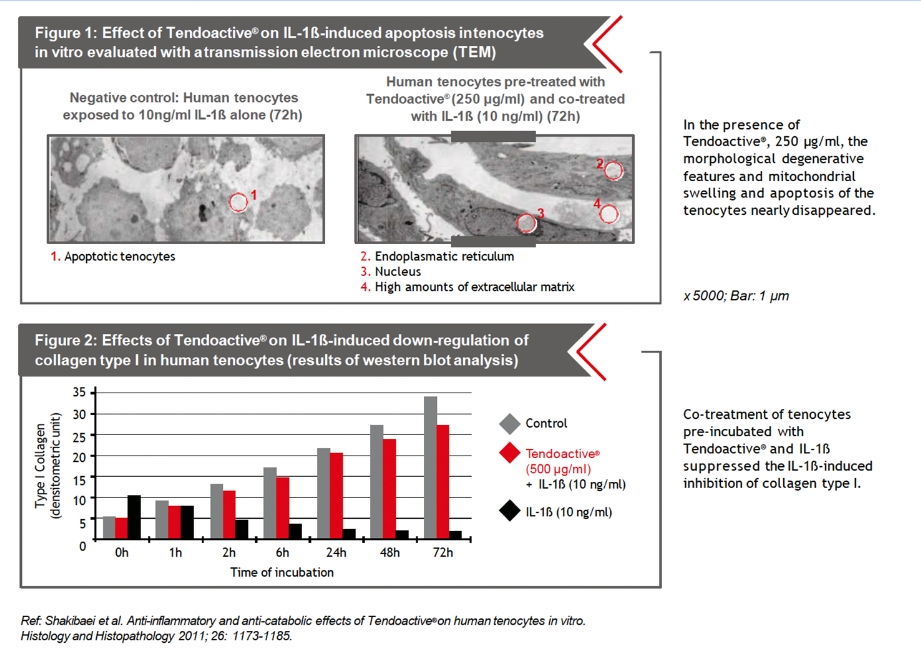In-Vitro study: Anti-inflammatory and anti-catabolic effects of Tendoactive® on human tenocytes
Objective
To investigate an in-vitro model of tendinitis to evaluate the effects of Tendoactive® on IL-1ß signaling and to determine whether Tendoactive® can suppress NF-kß-activation (anti catabolic effect) and NF- kß-regulated gene products (anabolic effect).
Methods
Primary cultures of human tenocytes (the cells that are responsible for producing the extracellular matrix and therefore, proteoglycans and type I collagen) were treated with IL-1ß for up to 72h. Expression of collagen type I, integrin ß1, cyclo-oxygenase-2 (COX-2), caspase-3 and matrix metalloproteinase-1 (MMP-1) was monitored by western blotting (anabolic effect).
The effects of Tendoactive® on the expression, phosphorylation and nuclear translocation of protein components of the NF- kß system were studied by western blotting and immunofluorescence respectively (anti catabolic effect).
The state of the cells (cell proliferation, cell viability and apoptosis) was also evaluated by transmission electron microscopy when treated with Tendoactive® and /orIL-1ß.
Results
Treatment of tenocytes with Tendoactive® suppressed IL-1ß-induced NF-kß activation and p65 nuclear translocation. These events correlated with down regulation of NF-kß targets including COX-2, MMP-1 and activated caspase-3 (anti catabolic effects).
Tendoactive® also reversed the IL-1ß-induced downregulation of type-I collagen (Figure 2) and ß1-integrin receptor expression (anabolic effect).
Regarding the results of the state of the cells, at 72h, the tenocytes completely recovered the adhesion and proliferation potential and no signs of apoptosis were observed. In addition, the transmission electron microscopy showed that the cells synthesized high amounts of extracellular matrix, which is necessary for the tensile strength of the tendon (Figure1).
Conclusion
These results indicate that Tendoactive® is effective in the prophylaxis of tendinopathies and has nutraceutical potential as an anti-inflammatory agent for treating tendinopathy through suppression of NF-kß mediated IL-1ß catabolic signaling pathways in tenocytes.
In addition, Tendoactive® increases the proliferation and viability of tenocytes. These results indicate that Tendoactive® could be useful in the prevention and/or treatment of tendinopathies.
